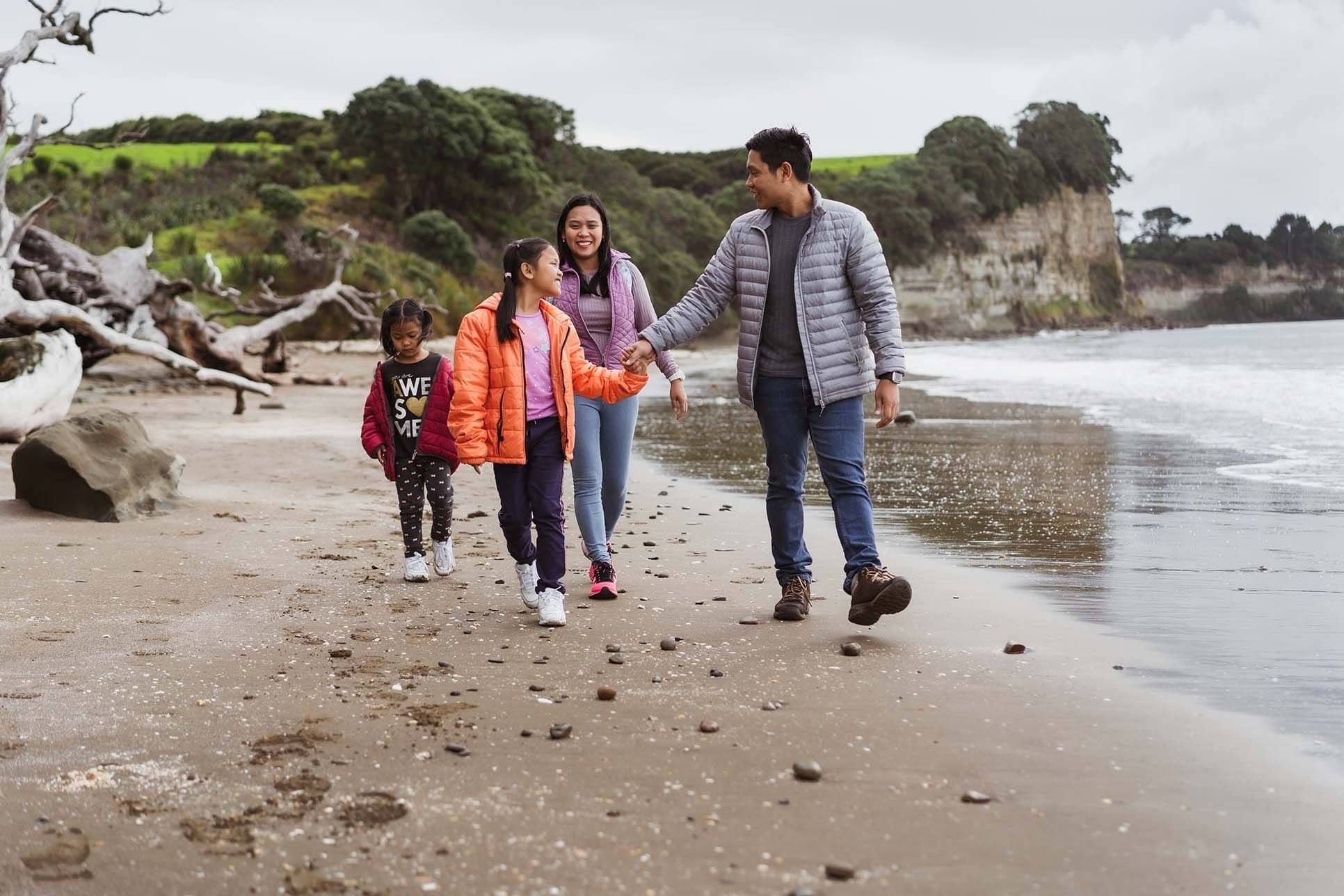Living with Diabetes
Will it go away?
We’re not sure why some people get type 1 diabetes, and there’s no way to prevent this type of mate huka (diabetes). As with adults, the insulin-producing cells that are found in the pancreas stop working. Currently, there is no cure for type 1 diabetes, but researchers are working hard to find one.
Type 2 diabetes can’t be cured, but some people can go into remission (when blood sugar levels stay in a healthy range, without medicine). There’s lots of evidence to show that some adults with type 2 who live with overweight or obesity can go into remission by losing a significant amount of weight. However, there is not much evidence to show that tamariki and rangatahi who develop the condition can also go into remission. The limited evidence about remission has mainly come from rangatahi who have undergone bariatric surgery (weight loss surgery).

Type 2 diabetes remission is quite a new area, so more research is needed before we fully understand it in different groups of people. We don’t have enough evidence to show that remission is permanent. It needs to be maintained, and in many cases, blood sugar levels can come back into the diabetes range, which is why it is so important that people continue with diabetes appointments while in remission.
Managing diabetes can be tricky, but it’s doable with the right tools and support. The good news is that with good management, you can live well with diabetes.
Being diagnosed with diabetes doesn’t mean you can’t live a happy and healthy life and achieve your dreams.
Who should I tell?
If your tamariki has diabetes, it's a good idea to tell your child’s kura (school). They can help support your child to live well with diabetes by encouraging a healthy, balanced diet plus plenty of exercise.
If your child uses insulin, they may need support with this, and it’s important the school are familiar with the signs of hypoglycemia (low blood sugar).
There is a lot to learn about how to care for a child or young person with diabetes. This learning involves the whole whānau and community such as school staff, friends, neighbours and sports coaches, among others.
You and your whānau needs love and understanding as they adjust to life with mate huka. Being patient, taking care of each other and reaching out for help are all important.
Diabetes New Zealand is here to help and support you, too. For more information or support, contact our free helpline on 0800 342 238 (0800 DIABETES).
I have diabetes, now what?
Your mate huka (diabetes) professional will help you and/or your tamariki or rangatahi to adjust and learn to manage and live well with diabetes. That might include:
Monitoring blood glucose: Checking levels regularly to see how the body is responding.
Understanding highs and lows: Knowing what low (hypo) and high (hyper) blood sugar looks like and how to balance them.
Food and nutrition: What to eat and when, and how to count carbohydrates.
Physical activity: Getting regular exercise to support blood sugar control.
Managing sickness: How to adjust care when you or your child is unwell.
Planning daily life: Organising diabetes care so you or your child can live their best life.
You and your whānau will need love and understanding to adjust to life with mate huka. Be patient, take care of each other and reach out for help if you need it.
Diabetes NZ is here to help and support you, too. For more information or support, contact our free helpline on 0800 342 238 (0800 DIABETES).
Keeping healthy with diabetes
Supporting the health and wellbeing of anyone with diabetes involves regular monitoring, balanced nutrition, and healthy lifestyle habits.
Managing diabetes includes regular check-ins on physical and emotional health, building routines that support independence as tamariki and rangatahi grow, and staying active and engaged with their whānau and community.
My Food Bag have made healthy eating easier with their weekly Diabetes Plan and their free recipe e-book full of diabetes-friendly meals that are easy to make and good for the whole whānau. Download the free resource:
With good support, tamariki and rangatahi with diabetes can lead healthy, fulfilling lives.

